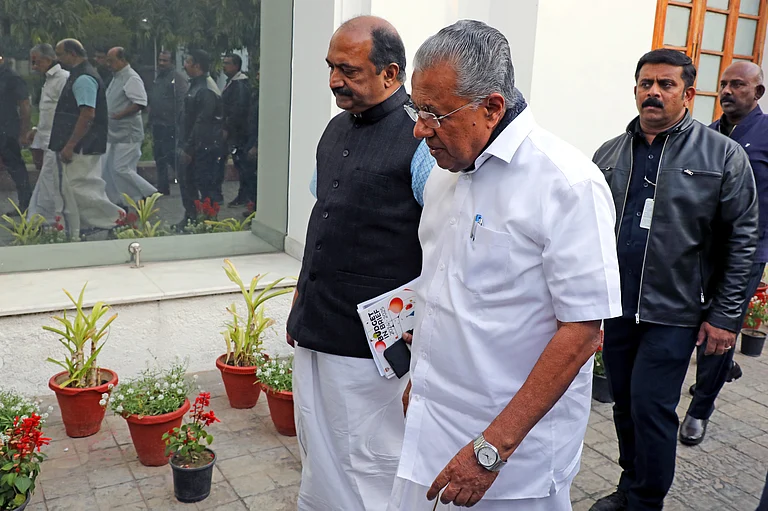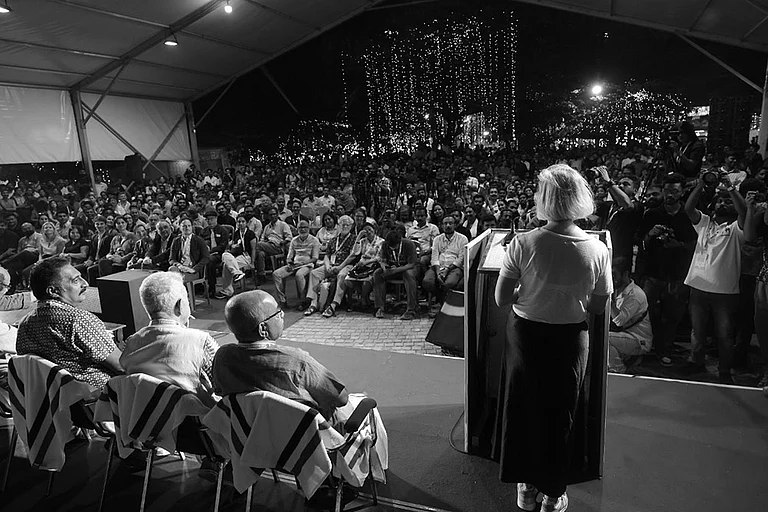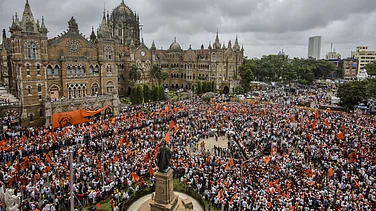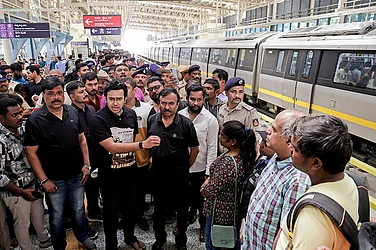In the colourful illustration of a bustling kitchen, a father is seen grating coconut while the mother cooks. A boy, holding a soft toy instead of a car, talks to his dad. The daughter is also present in the scene. This is an activity chapter from the Malayalam reader textbook for third-grade students under the SCERT syllabus in Kerala. The children are asked to list the tasks in a kitchen and identify who performs each task.
In the English Reader textbook for third-grade students, the mother is depicted cleaning the fan while the father is cooking. The children are asked to discuss the roles of their parents at home and whether they help the parents in house hold chores. In the Social Science textbook for fifth grade, there is a story about four children taking a trip to their friend Peeli's village. One of the children is a differently-abled girl who uses a wheelchair. The friends visit Peeli’s village, enjoy food prepared by Peeli’s dad, go sightseeing, and have fun. The story addresses prejudices about urban and rural life and introduces concepts of food production. When one of the children asks for the recipe of the food served by Peeli's mother, Peeli responds that they should ask her dad, who is then shown explaining the recipe to them.
The Kerala State Council for Education Research and Training (SCERT) is making a bold attempt to break stereotypes. The aforementioned lessons are from the newly amended textbooks introduced by SCERT this year. All textbooks begin with the Preamble of the Constitution and end with Part IV A, the Fundamental Duties enshrined in the Constitution. Additionally, every textbook includes the State Government’s policy on child rights, listing the rights of children in bullet points. The textbooks also provide various helpline numbers for children, such as Child Line, Crime Stopper, Nirbhaya, and the Kerala Police helpline, along with the contact information for the Kerala State Commission for the Protection of Child Rights.
"This is an attempt to introduce the concepts of gender sensitivity and inclusivity to young kids and to create awareness against marginalisation. Including differently-abled children and depicting dads cooking are part of this effort," says Sangeetha Chenambully, a member of the curriculum committee for the revision of the Class III textbooks. Sangeetha mentions that the hardest part was getting the right illustrations to match the new concepts. "The artists who drew the pictures were culturally conditioned. Sometimes, we had to ask them to change traditional clothing for girls. We received a drawing of a girl making a salad for the lesson on household chores, and we asked the artist to change it to a boy doing the same," she explains.
The social science textbook for class V introduces Greta Thunberg and her 'Save the Planet' campaign. It also includes lessons on democracy, emphasising that it begins at home and school. The textbook features illustrations of students, teachers, parents, and children making collective decisions through discussions. Additionally, it covers topics on discrimination based on clothing and explains how Gandhi used clothes as a tool in the struggle against British imperial rule.
This is not the first time the Government of Kerala has taken a stance contrary to the NCERT's initiatives. Last year, the SCERT introduced supplementary textbooks after the NCERT decided to omit 'politically sensitive topics' from higher secondary class textbooks, including lessons on Mughal kings. The additional history textbook for class 12 students is divided into two parts: Theme 1 and Theme 2. Theme 1, titled 'The Culture and Polity through Court Chronicles,' details the political and cultural aspects of the Mughal era. Theme 2, titled 'A Country Torn Apart,' covers the partition, a topic excluded by the NCERT.
The political science textbook for 9th grade explores two key concepts: peace and development. The initial section introduces structural violence in various forms, such as the caste system, patriarchy, colonialism, racism, and communalism. The subsequent section examines the societal ramifications of developmental processes.
The additional textbook for class 12 also includes lessons on the martyrdom of Mahatma Gandhi, the Five-Year Plans of the Nehru government, and movements such as the Narmada Bachao Andolan, Chipko Movement, Bharatiya Kisan Union, Anti-Arrack Movement in Andhra Pradesh, and the Dalit Panthers. The supplementary sociology textbook for class 12 introduces concepts like the caste system, communalism, and regionalism.




























